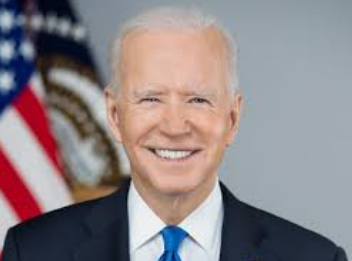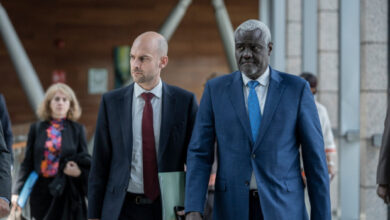Biden In Angola To Strengthen Ties And Promote Investments

On Tuesday, December 3, U.S. President Joe Biden embarked on a historic visit to Angola, marking his first and only trip to sub-Saharan Africa during his presidency. The visit, centered on a major infrastructure project, underscores the U.S.‘s growing interest in fostering strategic partnerships in Africa as a counterbalance to China’s expanding influence.
The Lobito Corridor: A Flagship Project
At the heart of Biden’s two-day visit is the Lobito Corridor project—a multinational initiative aimed at rehabilitating a critical railway line. This railway links the mineral-rich regions of the Democratic Republic of Congo (DRC) and Zambia to Angola’s Atlantic port of Lobito, facilitating the export of valuable resources. The project, funded by the United States, European Union, and other international partners, represents a key investment in Africa’s economic infrastructure.
White House National Security Advisor John Kirby described the project as a “game changer” for U.S. engagement in Africa. Biden’s administration hopes the initiative will promote economic stability and provide African nations with alternatives to Chinese investments, which have often left countries burdened with unsustainable debt. For instance, Angola owes China $17 billion, accounting for 40% of its total debt.
Strengthening Partnerships Beyond China and Russia
President Biden’s visit also highlights Angola’s efforts to diversify its international partnerships. President João Lourenço has signaled a willingness to engage with new allies, reflecting a shift in Angola’s foreign policy. While emphasizing that African nations do not need to choose between global powers, Biden’s administration advocates for “reliable, sustainable, and verifiable investment opportunities” that foster long-term growth.
Human Rights and Historical Reconciliation
While infrastructure and geopolitics dominate the agenda, human rights remain a critical issue. Amnesty International and other advocacy groups have urged Biden to address Angola’s rights record, which includes allegations of police brutality and the detention of government critics. Amnesty has documented at least 17 protester deaths between November 2020 and June 2023, highlighting the challenges of dissent in the country.
Biden’s visit includes a speech at Angola’s National Slavery Museum, a symbolic nod to historical reconciliation. The museum, located in Luanda, honors the memory of those who suffered under the transatlantic slave trade, drawing attention to shared histories between Africa and the Americas.
A New Chapter in U.S.-Africa Relations
As Biden prepares to hand over power to Donald Trump on January 20, his Angola trip serves as a significant moment in redefining U.S.-Africa relations. The Lobito Corridor project represents more than economic development; it is part of a broader geopolitical strategy to offer African nations alternatives to Chinese and Russian influence while fostering sustainable growth.
This visit, coupled with Angola’s strategic positioning in global politics and economics, may mark the beginning of a more balanced and diversified approach to Africa’s partnerships with the world.



